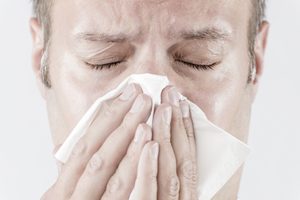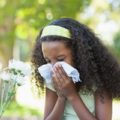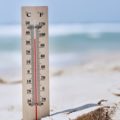
Though allergy sufferers in Northern California may luck out during the fall ragwood season – which isn't as bad as it is in other parts of the United States, according to allergy specialist Dr. Sean McGhee – experts say they expect the pollen count this spring to be particularly high.
Notably warm and dry weather has set the spring allergy season into motion sooner than usual, reports the San Jose Mercury News, and there are theories that climate change has also contributed to its length and severity.
"The weather here has been so bipolar that my allergies think that it has been springtime since December," Sarah Sohm, a South San Jose resident, told the source.
It's likely that individuals with allergies have already noticed the effects of tree pollen, but Dr. McGhee warns that grass pollen, which is arguably the most potent form of this irritant, won't be released for another month or two, so folks should do what they can to prepare. Even those who have asthma are advised to take the proper precautions to avoid exposure to these allergens.
"Pollen itself doesn't cause asthma," said Dr. McGhee, explaining that it does, however, exacerbate the symptoms. "We're starting to see people whose asthma was really well-controlled, but then things have gotten bad in the last month or so."
In addition to seeing a specialist and using any medication you've been prescribed to combat your allergies, there are other actions you can take to reduce your symptoms this season. You may want to consider investing in a whole house air purifier, which removes allergens directly from the air and makes it easier for you to breath inside your home. If you spend a lot of time in your vehicle, a car cabin air filter can prevent pollutants from getting into the passenger compartment.









